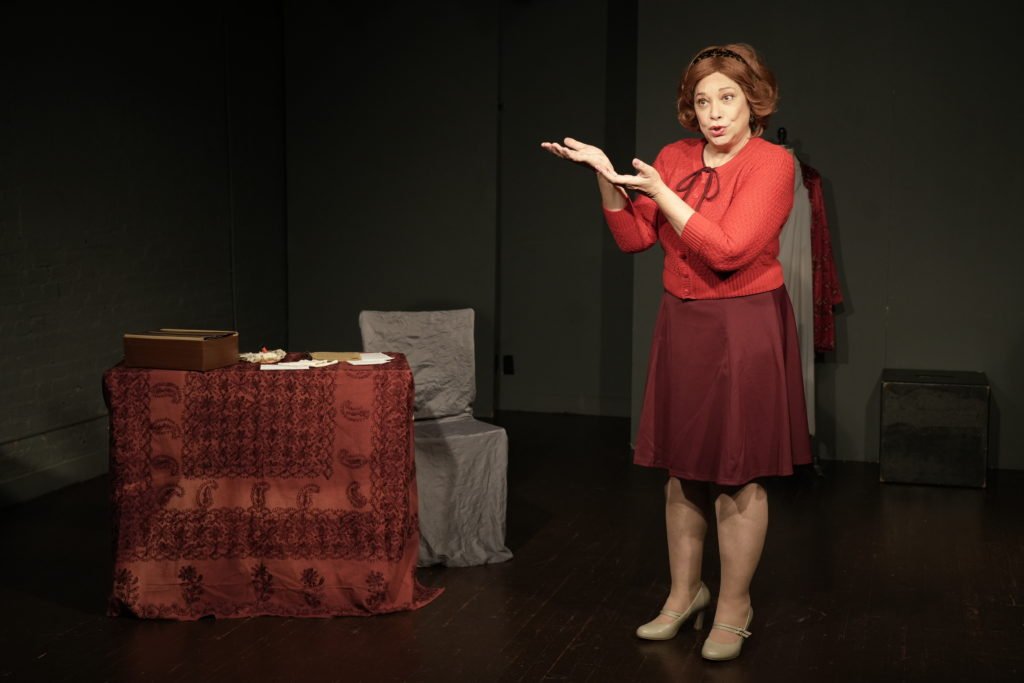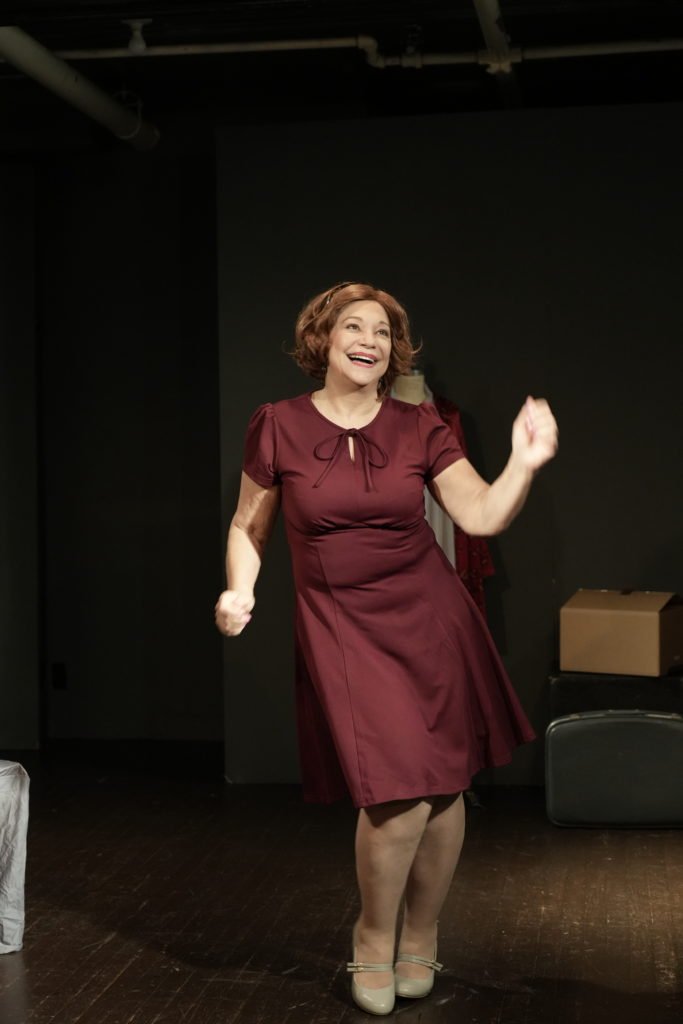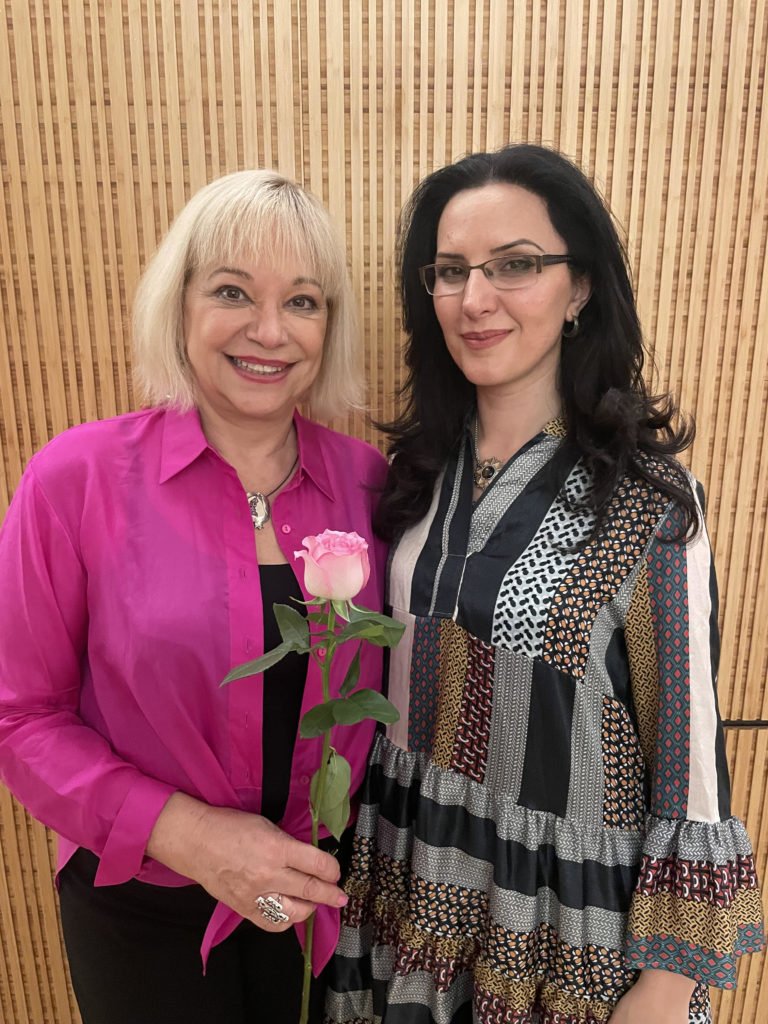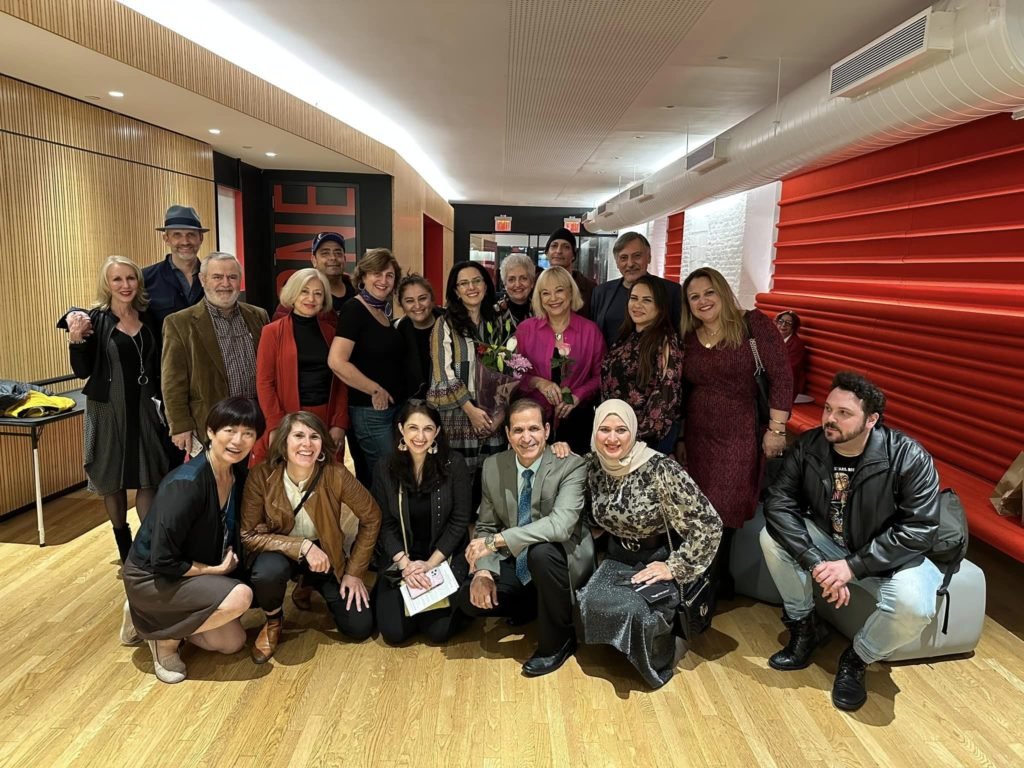
NEW YORK, NY—Nora Armani played to a packed house at NYC’s Theatre Row on Sunday, November 6 in the production Mercedes & Zaruhi by playwright Anush Aslibekyan. The performance was part of the UnitedSolo Theatre Festival. The production featured music composed by Vahan Arzruni and sound design by Peder Smith. It was originally written in Armenian; the English language translation was provided by Armani. Aslibekyan first created the story in 2012 and then turned it into a full play and subsequently a monologue.
Mercedes & Zaruhi explores the theme of repatriation to Soviet Armenia from the 1940s to the early 1990s through a series of letters between two sisters. Mercedes, however, never appears on stage. Her letters are shared through voiceover in Armenian, an interesting juxtaposition in the English version of the play which further highlights the distance and differences between the siblings.
The play centers around the life experiences of Zaruhi, who decides to repatriate to Armenia from Greece and leave her skeptical sister behind. When she arrives, she is quickly faced with the reality of oppression that Armenians faced in the Soviet Union, noting the “strained smiles” of citizens who have turned a blind eye to the poor conditions and lack of true freedom. Glimmers of hope are almost always quickly shattered. Zaruhi is greeted by distant relatives and is shocked at the reality of their living conditions. She gets married to a man who ultimately gets arrested and never returns home, rumored to have married another woman in Russia. She becomes a mother of two—a son with a disability and a daughter who resents her for being labeled an “immigrant’s daughter.” She lives in a home with an illegal second story; she rents out the first floor to a man working for Komsomol and his wife, only to be outed and rendered essentially homeless.

Armani provided an impressive and gut-wrenching performance as Zaruhi, whose struggles worsen and become more heartbreaking as the play unfolds. The intensity and dedication with which Armani portrayed this character was unparalleled and, one can only imagine, emotionally exhausting. She was able to capture Zaruhi throughout an entire lifespan, from an optimistic young woman eager to return to the homeland to a mother scarred by numerous hardships to a grandmother working toward acceptance and reconciliation. She crafted the character physically and emotionally, with the entire gamut of human experience. Details in the costume design reinforced this character’s dedication to Soviet Armenia, wearing bright red for the entire show and a red wig.
The play notably takes events that many have only read about in history books and gives them life, humanity and true emotional expression. The initial cultural shock and trauma of repatriation are palpable upon Zaruhi’s arrival to Armenia. She acknowledges the naivete of believing the propaganda movements at the time, as so many did. As she writes letters to her sister, audiences witness her use of code and pictures in fear of being sent to the Gulags in Siberia. If she is sitting, she is not doing well, whereas if she is standing, all is well. This metaphor carries throughout the show. Zaruhi’s character also shares the first time she is allowed to mourn the Armenian Genocide with the creation of Tzitzernagapert. One line in particular captured the entirety of the Soviet Armenian experience: “They force you to say ‘thank you’ as they cut off your head and put it in your lap.” Zaruhi often feels unable to be fully honest with her sister. Despite her hardships, her love for her homeland never waivers. As the play progresses into the 1980s and early 1990s, audiences are shown how the collapse of the Soviet Union begins to provide both hope and anxiety, and for some, a sense of closure toward a new beginning.

After the performance, Armani and Aslibekyan graciously greeted fans in the lobby of Theatre Row. They beamed with pride for support of their hard work and expressed gratitude for all those who were able to attend. “This is a wonderful opportunity to bring the work of Anush Aslibekyan to an English-speaking audience,” Armani stated. “My adaptation was…from the monologue version. I added some references and explanations to make it more accessible to a non-Armenian audience, and I’m thrilled with all the reception it has had!”

This play is currently in the syllabus for Modern Armenian Literature for 10th graders in Armenia and serves as an important educational resource of post-Genocide Armenian history.



Thank you Dalita Getzoyan and thank you The Armenian Weekly for such an insightful and appreciative review. We hope to bring the show to other communities in the US and internationally and this thorough review will help make it available to many.
Here is a video clip in case readers would like to see highlights from the play. https://www.youtube.com/watch?v=F5GoICa6ycE